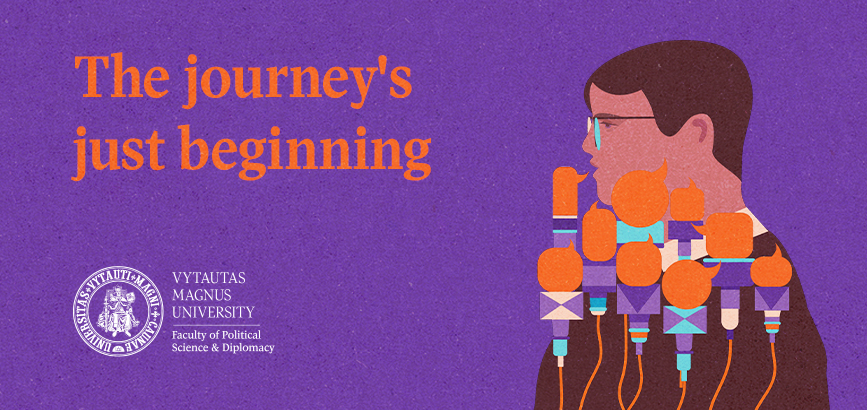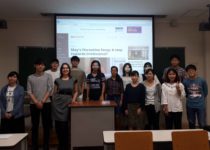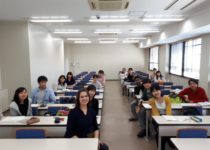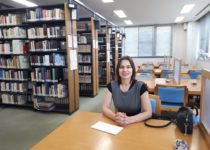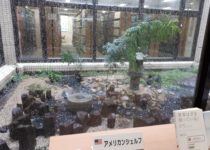Dr. I.Kalpokas Published New International Monograph
The international publishing house Routledge has published a book by Ignas Kalpokas, lecturer at the Department of Public Communication of the Faculty of Political Science and diplomacy, entitled Creativity and Limitation in Political Communities: Spinoza, Schmitt and Ordering.
This book seeks to address the inherent tension between popular and establishment powers in political communities, a task made ever more pertinent by the rise of anti-establishment sentiment across Western democracies. By combining the theories of Carl Schmitt and Benedict Spinoza, the author develops a framework of continuous reproduction, whereby the constitutive and the constituted powers simultaneously hold one another in tension and supersede one another. In the same vein, political communities are shown to be perpetually caught in a cycle of creativity/contestation, derived primarily from Schmitt and limitation, derived from Spinoza.
Providing a novel theoretical framework explaining the workings of democratic politics, this book also offers a non-traditional reading of Spinoza and Schmitt. Whereas traditionally both have been treated as almost polar opposites, in this book they are held in creative tension, thereby generating an impetus for novel political thought. By furthering their analysis, Ignas Kalpokas creates a new theory of political action.
Doc. I.Unikaitė-Jakuntavičienė – a co-author of a new book
Dr. S. Rakutienė’s visit to Japan
Public Lectures by prof. Alpo Rusi
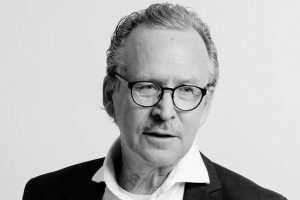
VMU visiting professor Alpo Rusi, who previously served as Finnish Ambassador and political adviser to Finnish President M.Ahtisaari, gave public lectures at the Faculty of Political Science and Diplomacy:
October 18 – EU relations with Russia: economical sanctions and positions towards EU after Crimea annexation; 12:00-13:30, Don.52 -613;
October 19 – Russia’s attitude and relations with Black sea regional countries; 12:00, Ged.44 – 202.
Prof. Alpo also visited VMU between 10-12 October and gave public lectures:
October 10 – Becoming diplomat or political adviser: skills to be acquired ; 13:00-14:30, Ged. 44-302
October 11 – The Lithuania’s and Finland’s position on security in the Baltic sea region. 14.30 – 16.00 Ged.44 – 301;
October 11 – Diplomatic reporting during the Digital age. 16.15-17.45, Ged. 44 – 301.
Ministry for Foreign Affairs of Finland has granted a one-off fund of 20 000 euros for the Rudolf Holsti named Professorship at Vytautas Magnus University in Kaunas, Lithuania, in the Faculty of Political Sciences and Diplomacy.
Vytautas Magnus University has appointed Dr. Alpo Rusi, Ambassador emeritus, Adjunct Professor at Helsinki University, to this named Professorship. Dr. Rusi has been a visiting professor at Vytautas Magnus university since March 2016.
As countries in the Baltic Sea region Finland and Lithuania have common interests both in security policy as well as in the European union. The named professorship will promote the common knowledge about issues related to the Baltic Sea co-operation in particular for the future challenges. It also will facilitate the deepening of co-operation between the universities of our two countries.
“Ambassador Alpo Rusi has a long and meritorious career in the Finnish foreign service as well as in the international assignments benefitting Finland. His appointment to the Rudolf Holsti named professorship to Kaunas is a valuable step for Finland and Lithuania”, Foreign Minister Timo Soini has stated.
The launching of the professorship will promote the knowledge concerning Rudolf Holsti (1881-1945) and his lifetime achievements as foreign minister of Finland during the early years of Finland’s independence 1919-22 and during the difficult times in the years 1936-38. He also served his country as a Special Envoy to Riga, Tallinn, Bern and the League of Nations between 1919 and 1940.
Brill Published Book Co-Edited by Prof. Egdūnas Račius

The Netherlands-based publishing house Brill has published Islamic Leadership in the European Lands of the Former Ottoman and Russian Empires, which is edited by Professor Egdūnas Račius from the VMU Dept. of Regional Studies and Antonina Zhelyazkova from the International Centre for Minority Studies and Intercultural Relations.
In the book, the history and contemporary development of Islamic leadership in over a dozen of Eastern European countries is analysed. The studies are presented through a double prism: the institutional structures of the Muslim communities and the place of the muftiates in the current national constellations on one hand, and the dimension of the spiritual guidance emanating from the muftiates on the other. The latter includes aspects such as the muftiates’ powers and role in supervision of mosques and other religious institutions, production, dissemination and control of religious knowledge and discussions on traditional and non-traditional forms of Islam engaged in by the muftiates.
This is the first comprehensive edited volume on the subject.
Contributors are: Srđan Barišić, Ayder Bulatov, Marko Hadjdinjak, Olsi Jazexhi, Memli Sh. Krasniqi, Armend Mehmeti, Dino Mujadžević, Agata S. Nalborczyk, Egdūnas Račius, Aziz Nazmi Shakir, Vitalii Shchepanskyi, Jakob Skovgaard-Petersen, Daša Slabčanka, Aid Smajić, Irina Vainovski-Mihai, Mykhaylo Yakubovych, and Galina Yemelianova.
New Publication on Nuclear Geopolitics in the Baltics
Professors of the Faculty of Political science and diplomacy dr. Giedrius Cesnakas and PhD candidate Justinas Juozaitis published the research paper “Nuclear Geopolitics in the Baltic sea region”. The paper was issued in Atlantic Council . To read the full publication please visit Atlantic council
CEU Assoc. Prof. Pogonyi Discussed Populism at VMU

“In the past decade, populist parties throughout the world have become major political players. New populist political parties emerged and, at the same time, different variations of nativism and nationalist populist rhetoric have become common among mainstream left- and right-wing parties. In some cases, populist parties have been associated with anti-democratic movements, while in other cases, populists claim to reinvigorate democracy”, Szabolcs Pogonyi, Associate Professor in the Nationalism Studies Program at Central European University (CEU) says.
Szabolcs Pogonyi visited Lithuania upon invitation of the Open Society Fund Lithuania (ALF). On September 8, he gave public lecture at the VMU Faculty of Political Science and Diplomacy about the spectre of populism, which has recently been gaining prominence in the political world.
According to Pogonyi, populism has often been used as a synonym of reckless demagoguery. In everyday politics, the broad and often controversial use of the term rendered ‘populism’ as an analytically confusing, empty concept. In this presentation, the lecturer will focus on the specificity of populist politics in the post-Communist space.
“First, I give a conceptual and historical overview of populists movements. Second, I identify the main features of contemporary populist parties. Finally, I turn to national populist parties in Central and Eastern Europe and explain their specificity”, says Assoc. Prof. Szabolcs Pogonyi.
The public lecture of Szabolcs Pogonyi, ‘The spectre of populism’, was held on 8 September, 1 p.m., at the VMU Faculty of Political Science and Diplomacy (V. Putvinskio g. 23, Room 311).
MFA Supports Rudolf Holsti Named Professorship at VMU
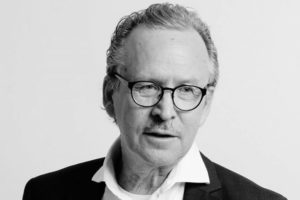
Ministry for Foreign Affairs of Finland has granted a one-off fund of 20 000 euros for the Rudolf Holsti named Professorship at Vytautas Magnus University in Kaunas, Lithuania, in the Faculty of Political Sciences and Diplomacy.
Vytautas Magnus University has appointed Dr. Alpo Rusi, Ambassador emeritus, Adjunct Professor at Helsinki University, to this named Professorship. Dr. Rusi has been a visiting professor at Vytautas Magnus university since March 2016.
As countries in the Baltic Sea region Finland and Lithuania have common interests both in security policy as well as in the European union. The named professorship will promote the common knowledge about issues related to the Baltic Sea co-operation in particular for the future challenges. It also will facilitate the deepening of co-operation between the universities of our two countries.
“Ambassador Alpo Rusi has a long and meritorious career in the Finnish foreign service as well as in the international assignments benefitting Finland. His appointment to the Rudolf Holsti named professorship to Kaunas is a valuable step for Finland and Lithuania”, Foreign Minister Timo Soini has stated.
The launching of the professorship will promote the knowledge concerning Rudolf Holsti (1881-1945) and his lifetime achievements as foreign minister of Finland during the early years of Finland’s independence 1919-22 and during the difficult times in the years 1936-38. He also served his country as a Special Envoy to Riga, Tallinn, Bern and the League of Nations between 1919 and 1940.
Why VMU: It’s Like Studying in the United Nations
An intern from Hong Kong currently working at VMU interviewed a number of international full-time students and asked them to explain the reasons for choosing studies at Vytautas Magnus University. This series of articles, “Why VMU?”, presents their thoughts.
Mohammad Noman is a second-year student of World Politics and Economics at VMU. He explains that he applied for this programme because of positive feedback he heard about the VMU Dept. of Political Science. “VMU is in a country which is a member of the European Union, it is famous for its political field and provides the best education for students. It is especially good for students coming from the Middle East. My friend highly recommended it to me”, Mohammad, who hails from Afghanistan, says.
Mohammad is grateful for the international atmosphere of the university. According to him, this experience is “like studying in the United Nations”: VMU welcomes lots of students from different countries. He enjoyed meeting new people who come from different cultural backgrounds and speak different languages.
Due to all the international friends that he has, Mohammad can now speak simple words, such as “hello” and “thank you”, in multiple languages. He is appreciative of the vast amount of exchange programs available at VMU and says he is definitely planning to apply for one of them in the future.
Aside from the international atmosphere, Mohammad also likes the university’s teachers and lecturers. “The professors here do not just read out the notes in the classes and leave. They care about the learning experiences of the students. Students need to do lots of preparation, such as reading and writing before classes”, the student says. Mohammad believes this could help the students to be more hardworking and deepen their understanding of the studies.
While he is majoring in political science, Mohammad is also very eager to learn knowledge of other fields as well. He is highly thankful to VMU for its focus on liberal arts, which means an orientation towards a diverse, wide range of knowledge for each student. “We can learn general knowledge about different issues. This helps the students to become broad-minded and critical individuals”, Mohammad explains.
The sophomore student dreams to not only provide a comfortable life for his family, but also to create a happy and peaceful life for people in general. He would like to be the man of the people and work to change the society. The Afghan native is grateful that the education provided by VMU gave him the chance to acquire different pieces of knowledge and to also change his mindset, which will help him to become a better person and achieve his dream in the future. He highly appreciates the impact of education of VMU.
Why VMU: Interactive Lectures and Vibrant Student Life
An intern from Hong Kong currently working at VMU interviewed a number of international full-time students and asked them to explain the reasons for choosing studies at Vytautas Magnus University. This series of articles, “Why VMU?”, presents their thoughts.
Zakarija Muhamadovic has recently graduated from international politics and development studies at VMU, earning his BA degree. He chose this famous programme four years ago, after finding out about its high education quality and active student life at VMU. Then he discovered that the university was even better than he expected and decided to continue his studies here, now pursuing a master’s degree.
The education quality of VMU impressed Zakarija the most. “At the end of each lecture, my mind is filled with knowledge, I’ve learned a lot. Not just learned, but also had fun in the lecture”, the student noted. He shows great admiration to the professors, commenting that they are friendly and easy to talk to. The classes are not only interactive, but also interesting. There are the different types of activities involved in the lectures, such as debates, discussions, and seminars. This allows students to deepen their learning through participation. Apart from interactive discussions with classmates and professors, the professors also helped Zakarija in his writing. He is pretty proud that now he is able to write a decent academic articles after all the training and help he received from the professors. He believes that the skills and knowledge that he gained from the professors will benefit and help him in pursuing his master degree.
Apart from learning the knowledge of his major, the Moroccan student also obsessed with Lithuanian language. He took two Lithuanian courses over the past 4 years. “I have been learning Lithuanian for one year. My friends help me a lot. I love the language. It is very beautiful and interactive, although it is totally different from my native tongue, it is not too difficult to learn. If you work hard, then you will do well.” Zakarija recognizes the impact of learning the local language and says that learning Lithuanian has helped him to understand this country and facilitated his integration here.
Apart from the academic aspect of VMU, the recent graduate also gave huge credit to the vibrant student life here. “The school has an international environment, people here are open-minded and friendly. Students are mainly from Europe, but also from Venezuela, Hong Kong, and other countries”. He frequently attends concerts or excursions and visits museums with friends. Zakarija is also very keen on cultural events, such as presentations of Chinese food and culture by students. Whenever there a cultural event on the campus, he will be sure to attend. The vibrant student life in VMU kept Zakarija really active. He is a member of multiple organizations, such as the Agora Speakers Club and the Asian Culture Club. He believes being a member of different organizations will help him to be more open-minded, mature and most importantly, more active in both life and classes.
Overall, Zakarija has benefited a lot from the Bachelor education in VMU. The excellent experiences that he has gained at VMU and in Lithuania even resulted in him making the decision to stay and work in Lithuania after acquiring his master degree in VMU. He is excited for what amazing things are going to happen. He is very grateful for all the amazing experiences that he has in VMU.




